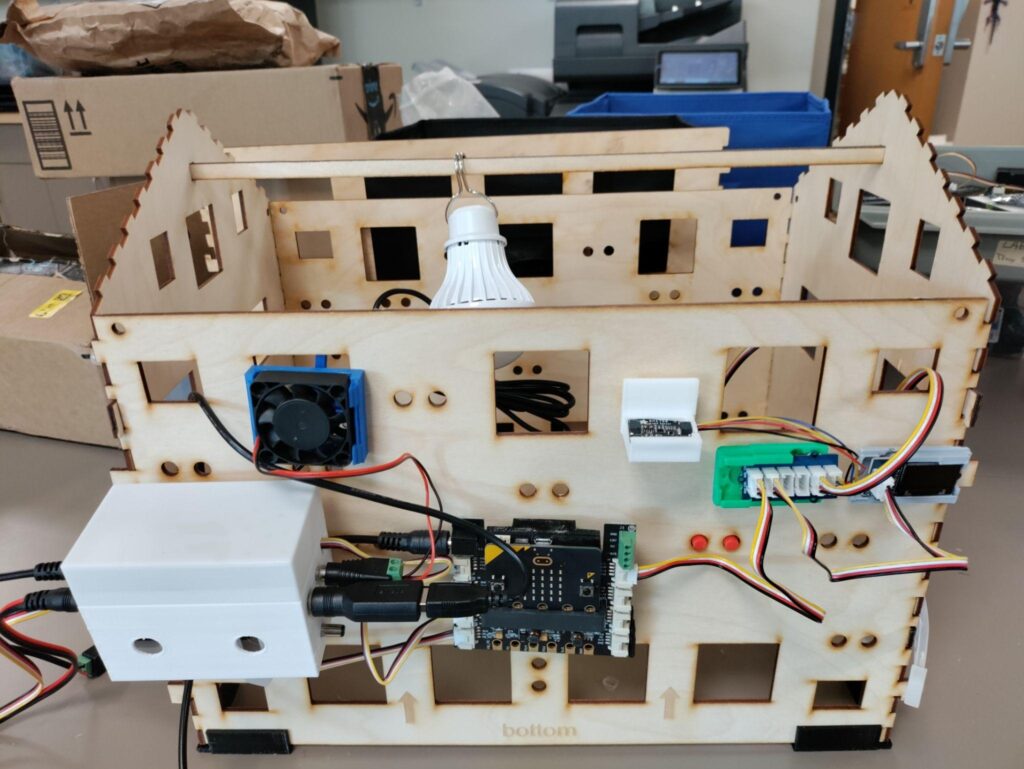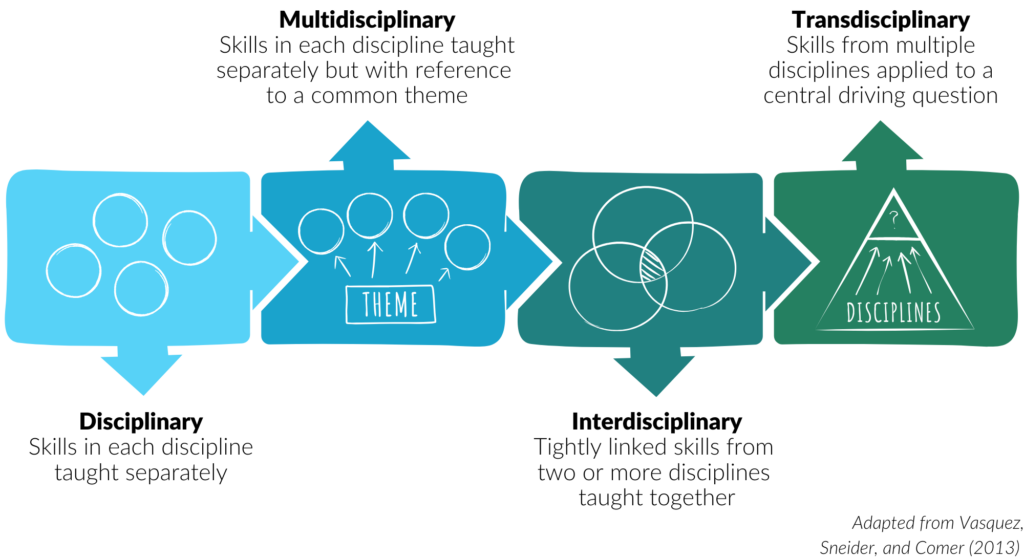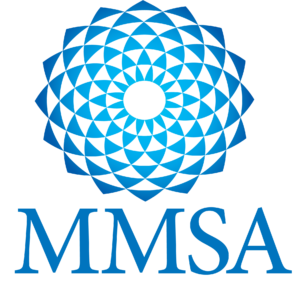
Building Teacher Capacity for Designing Transdisciplinary Learning Experiences
MMSA has embarked on a National Science Foundation (NSF)-funded research collaboration with the Boston College Lynch School of Education and Human Development to bring their Smart Greenhouse curriculum to Maine schools. The curriculum combines plant science and computer science to solve problems and study phenomena in horticulture and related fields. Middle school and high school teachers will use the curriculum with their students and adapt it to meet their interests and unique needs.
About Smart Greenhouses
Smart Greenhouses are desktop structures outfitted with affordable technology. Micro:bit processors, which are tiny computers that can be controlled with block-based coding, are the brains of the operation. Sensors attached to the Micro:bit measure temperature, humidity, CO2, and light levels. Screens and LEDs provide a quick look at the conditions in the greenhouse. Still more tech — including a heater, humidifier, fan, and light bulb — mount on the structure to control the greenhouse environment. The system allows students to collect data and conduct investigations within the mini greenhouse environment while learning about coding, computational thinking, and life science.

MMSA will officially kick off this project at the 2025 CS Summer of Fun with a five-day Smart Greenhouse Institute. Participants will include 10 educators from multiple disciplines, including traditional sciences and computer science, who work with youth in middle and high school. Since the goal of the project is to teach computational thinking and life science in tandem, this mixed group of educators will enrich the learning experience for each other. At the Institute, teachers will experience the very lessons they will do with their students. They will then return to their classrooms with all of the materials they need to set up their Smart Greenhouses. Throughout the school year, MMSA will provide additional professional development and individual support for the educators as their students work with the Smart Greenhouses. Educators, in turn, will take an active role in adapting the curriculum to meet their needs and the needs of their students. For more information on the benefits and expectations for participants, check out our Smart Greenhouse Fact Sheet.
Now Recruiting Our Pilot Cohort!
MMSA is seeking 10 educators from multiple disciplines, including traditional sciences and computer science, who work with underserved youth in middle and high school. All levels of CS experience are welcome.
Benefits
- Free Smart Greenhouse Institute (July 21-25), including breakfast, lunch, and lodging for the week
- Mileage reimbursement up to $100 for traveling to the Institute
- Stipend of $400 per day at Institute
- Additional stipends for ongoing participation in follow-up Zoom sessions
- Smart Greenhouse kits to bring back to your classroom
- NGSS-aligned Smart Greenhouse curriculum to use and adapt in your classroom
- Reimbursement for additional supplies
- Ongoing support from MMSA staff
Expectations
- Year 1 (2025-26 School Year)
- Smart Greenhouse Institute, July 21-25, 2025 in Bangor
- Zoom sessions and individual check-ins throughout the school year (~30 hours)
- Implement Smart Greenhouse curriculum with students
- Complete evaluation activities and share curriculum adaptions with Cohort
- Year 2 (2026-27 School Year)
- Attend Smart Greenhouse Institute, date and location TBD, summer 2026
- Zoom sessions and individual check-ins throughout the school year (~30 hours)
- Implement & adapt Smart Greenhouse curriculum with students
- Complete evaluation activities and share curriculum adaptions with Cohort
What is Transdisciplinary Learning?
Computer Science integration happens along a spectrum: on one end, disciplines are taught separately; at the other end, multiple disciplines are applied to answer a unifying question. This latter approach is called Transdisciplinary Learning. In the case of smart greenhouses, Micro:bits provide an approachable entry level into coding, and the sensors and controls allow students to apply what they’re learning about plant science to the mini greenhouse environment.

Project Partners


Project Funder

This project is funded by the National Science Foundation, grant #2405584. Any opinions, findings and conclusions or recommendations expressed in these materials are those of the author(s) and do not necessarily reflect the views of the National Science Foundation.


